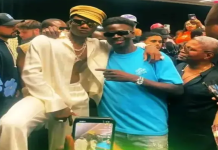The Chief Executive Officer of Twitter, Elon Musk has shared his thoughts on how artificial intelligence could lead to “civilization destruction.”
The business magnate made comments during an interview on CNN, despite him being deeply involved in the growth of AI through his many companies, including a rumored new venture.
Musk spoke during in his interview with Tucker Carlson, which is set to air in two parts on Monday and Tuesday nights, CNN reports.
He said, “AI is more dangerous than, say, mismanaged aircraft design or production maintenance or bad car production, in the sense that it is, it has the potential — however small one may regard that probability, but it is non-trivial — it has the potential of civilization destruction.”
Shedding more light concerning his submission on AI, Musk has repeatedly warned recently of the dangers of AI, amid a proliferation of AI products for general consumer use, including from tech giants like Google and Microsoft.
The business magnate last month also joined a group of other tech leaders in signing an open letter calling for a six month pause in the “out of control” race for AI development.
Speaking further, he affirmed that he supports government regulation into AI, even though “it’s not fun to be regulated.” Once AI “may be in control,” it could be too late to place regulations, Musk said.
“A regulatory agency needs to start with a group that initially seeks insight into AI, then solicits opinion from industry, and then has proposed rule-making,” Musk added.
Although, Musk has raised alarm concerning AI for years – something he acknowledged in a tweet over the weekend – but he has also been a part of the broader AI arms race through investments across his sprawling empire of companies.
However, it might seem interesting to know that Tesla, relies so much on artificial intelligence that it hosts an annual AI day to tout its work.
Considering Musk’s opinion and intentions as a founding member of OpenAI, the company behind products like ChatGPT (Musk has said the evolution of OpenAI is “not what I intended at all.”)
And at Twitter, Musk said in a tweet last month that he plans to “use AI to detect & highlight manipulation of public opinion on this platform.”
To Carlson, Musk said he put “a lot of effort” into creating OpenAI to serve as a counterweight to Google, but took his “eye off the ball.”
Now, Musk said he wants to create a rival to the AI offerings by tech giants Microsoft and Google. In his interview with Carlson, Musk said “we’re going to start something which I call TruthGPT.” Musk described it as a “maximum truth-seeking AI” that “cares about understanding the universe.”
“Hopefully there’s more good than harm,” Musk said.
More recently, Musk is reportedly working to build a generative AI startup that could rival OpenAI and ChatGPT. The Financial Times reported last week that Musk is building a team of AI researchers and engineers, as well as seeking investors for a new venture, citing people familiar with the billionaire’s plans. Musk last month incorporated a company called X.AI, the report says, citing Nevada business records.
During his conversation with Carlson, Musk addressed his ownership of Twitter — which he bought for $44 billion and has been engaged in controversy since.
“I thought there’d probably be some negative reactions,” Musk told Carlson, saying the public will ultimately decide the app’s future.
The main account for the New York Times lost its blue check mark earlier this month, which had previously told CNN it would not pay for verification.
“There’s obviously a lot of organizations that are used to having sort of unfettered influence on Twitter that no longer have that,” Musk said, appearing to give the 171-year-old newspaper advice on how to manage the content of its account, calling its feed “unreadable.”
Musk said he was an active Twitter user since 2009 and started developing a “bad feeling” about where the app was heading, but did not specify what it was. He said he later decided to acquire the platform after unsatisfying conversations with its board and management.


























